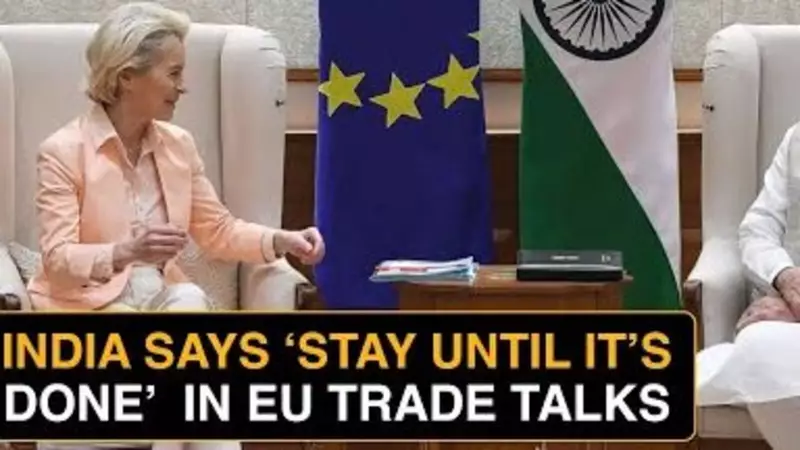
In a significant breakthrough that could reshape global trade dynamics, India and the European Union are accelerating efforts to finalize their long-pending Free Trade Agreement (FTA) by the end of this year. After multiple rounds of negotiations spanning over a decade, both economic powerhouses appear closer than ever to sealing what could be one of the most consequential trade deals of the decade.
The Final Push: 'Stay Until It's Done'
Sources close to the negotiations reveal that both sides have adopted a 'stay until it's done' approach, indicating unprecedented commitment to resolving outstanding issues. The renewed momentum comes amid growing geopolitical shifts and both parties' recognition of the strategic importance of strengthened economic ties.
What's at Stake for Both Economies
The India-EU FTA represents more than just a trade agreement—it's a comprehensive economic partnership that could:
- Boost bilateral trade beyond the current $130 billion threshold
- Create new market access opportunities for Indian services and professionals
- Provide European companies with enhanced access to India's vast consumer market
- Strengthen supply chain resilience amid global uncertainties
Key Negotiation Points Nearing Resolution
While specific details remain confidential, insiders suggest significant progress has been made on several contentious issues including:
- Market access for agricultural and industrial goods
- Digital trade and data protection standards
- Intellectual property rights protection
- Sustainable development and labor standards
Strategic Timing and Global Implications
The potential year-end timeline for finalizing the agreement carries strategic significance. Both India and the EU are seeking to diversify their trade partnerships and reduce dependencies on single markets. This agreement could position both economies as pivotal players in the emerging multipolar global trade architecture.
As negotiations enter their crucial final phase, business communities on both sides are watching closely, anticipating that a successful agreement could unlock billions in new trade and investment opportunities while setting new standards for 21st-century trade partnerships.






